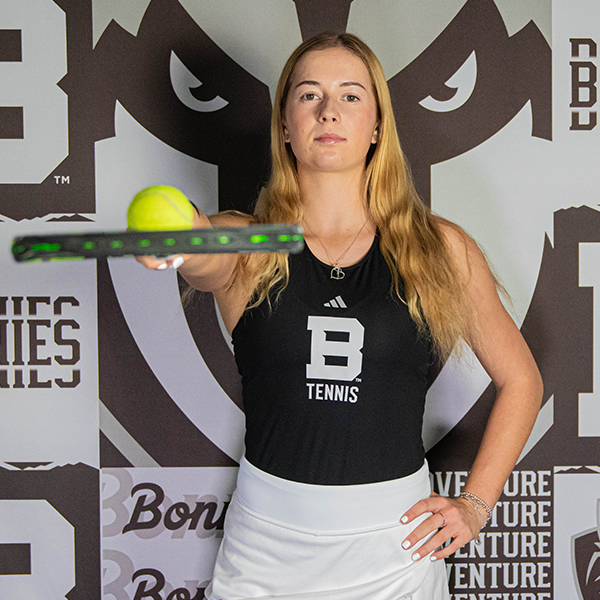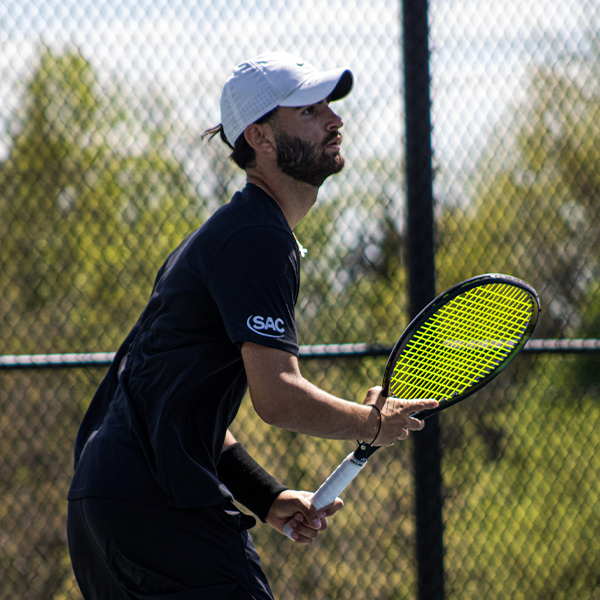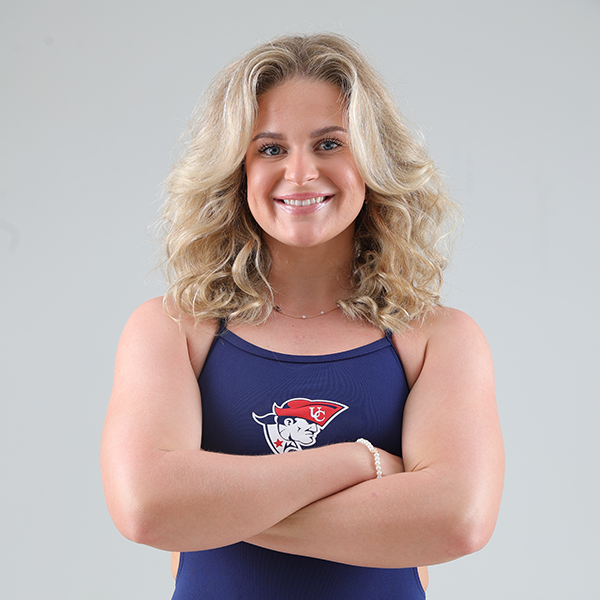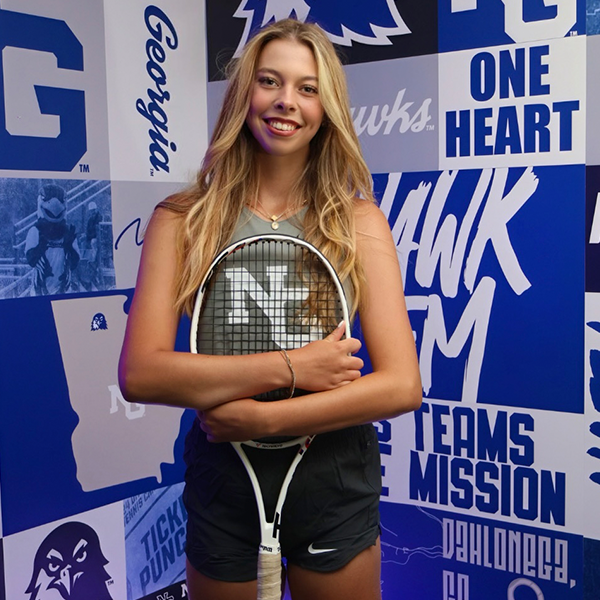
Linn Goerdes
The Student-Athlete Experience 2025: Growth and Passion in Action
The Student-Athlete Experience 2025 is more than just a name—it’s a campaign built on the voices of international student-athletes who live, train, and compete in the U.S. every single day. No one understands what it’s like to be an international student-athlete in 2025 better than someone living it right now.
Train. Study. Compete. Grow.
Through real stories from around the world, we’re showing what it means to give everything to the sport you love, your education, and your future while building a new life thousands of miles from home.
Because it’s not just about matches or titles. It’s about the drive, the sacrifice, the growth, and the community you find along the way. Being a student-athlete in 2025 is demanding but powerful, unforgettable, and an experience you carry with you forever.
We asked Linn Goerdes, a tennis player from Germany studying at University of North Georgia, to give a glimpse into his student-athlete experience.
The Student-Athlete Experience 2025: This is what living it really feels like.
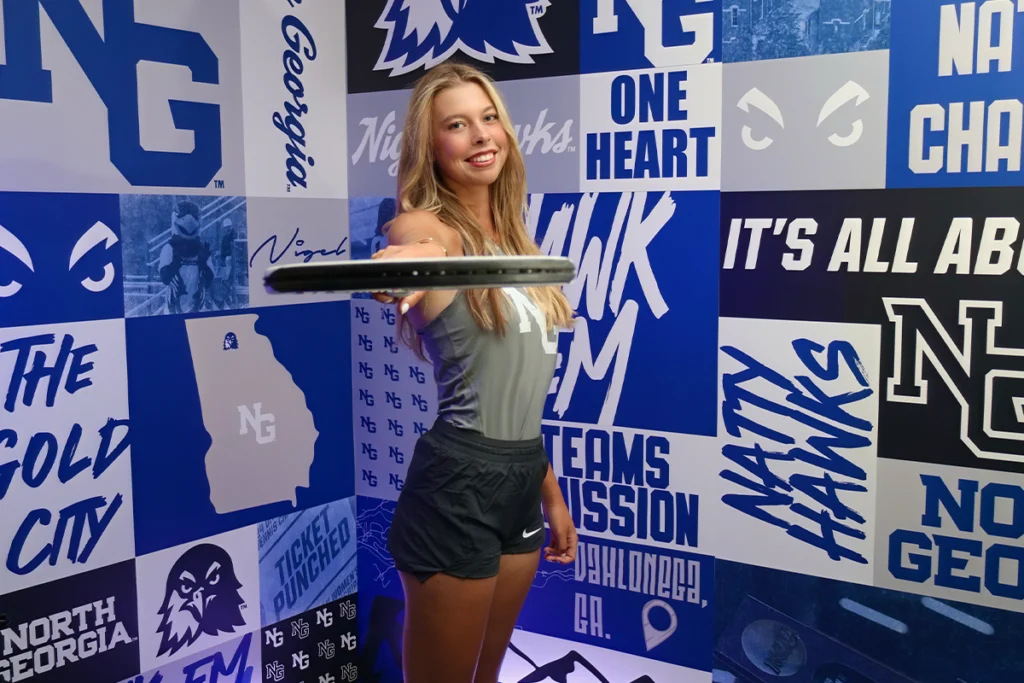
How College Sports Have Helped Me Grow
College sports are a unique experience that leads athletes to develop in new ways. For Linn Goerdes, the journey has been full of new experiences, tough challenges, and special moments she’ll never forget. She shares what it’s really like to be part of a college team—how it’s helped her grow, made her stronger, and taught her to never give up.
“Being a student-athlete means taking responsibility and always remembering what you’re playing for. College sports here are very different from back home. It’s like being part of a big family, and your attitude matters just as much as your skills.
One big lesson I’ve learned is that even if you’re losing badly, like 0–6, you can always make a comeback. To stay on top of everything, I try to be responsible and focus on what I need to do to compete well. My team has helped me grow a lot—they’ve taught me how important it is to be loud on court and to always play for the team.”
My Campus Life Experience
Campus life is one of the best parts of studying at an American university. With so many buildings, facilities, student organizations, and events happening every week, there’s always something going on. For international student-athletes, this lively environment is a great way to meet people, feel included, and never feel bored. Linn shares what stood out to her when she arrived and how campus life has shaped her college experience.
“When I first stepped onto campus, everything felt so new and big—it was a lot to take in. But over time, I’ve come to really enjoy the calm and aesthetic vibe of the campus.
My favorite spot is Memorial Hall because it’s where all the athletes and coaches hang out when they have free time. Being on campus has really helped me balance sports and academics. One thing that surprised me was seeing sororities—I didn’t even know they existed before coming here, and now they’re one of those things that really stand out about campus life.”
The Academic Side of Being a Student-Athlete
The US college system offers plenty of support for student-athletes, but it still takes good time management and focus to succeed. Here is how Linn manages the academic side of college life.
“I’m studying Biology, Pre-Med, because I’ve always wanted to be a doctor or work in the medical field—it’s been my dream since I was a little girl. As a student-athlete, I get a lot of support from professors and tutors. I go to their office hours if I have questions or even retake exams when needed. To balance my sports and academics with social life, I spend time with my teammates or cook, which really helps me relax.”
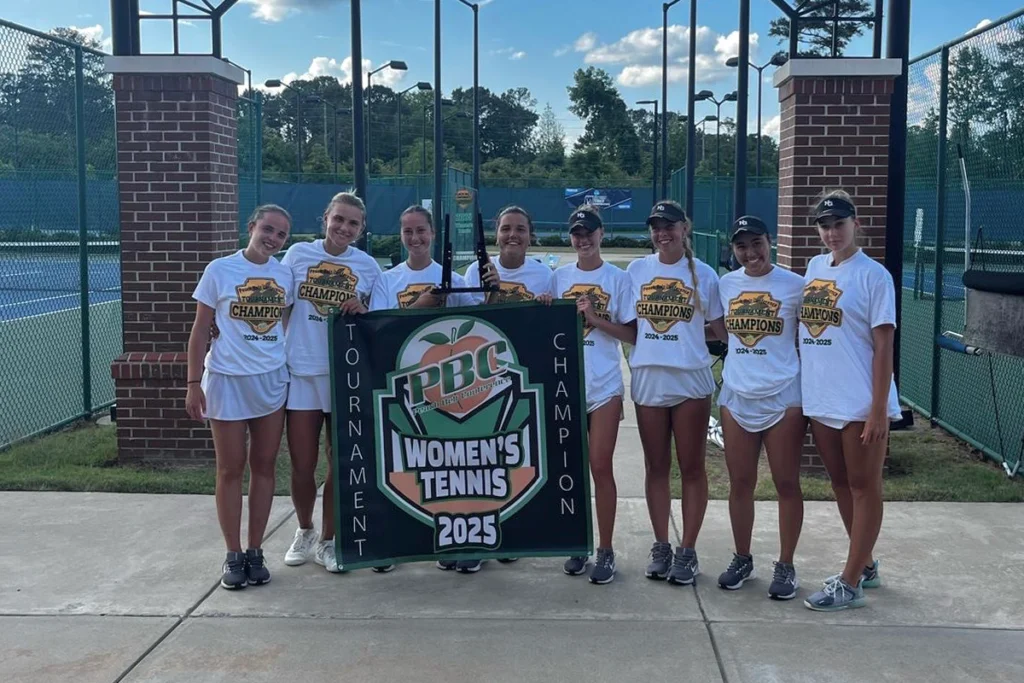
Adapting to a New Culture
When moving to the US, international athletes face cultural differences. Some are easy to embrace and become part of their daily routines, while others can be more challenging to adjust to. Linn shares how she experienced this transition and the cultural habits that have stuck with her.
“One of the things that surprised me the most about the U.S. is how people talk to each other. Everyone seems so outgoing and extroverted. One cultural habit I’ve picked up here is going to church more often and being more religious, which is something I’ll definitely take home with me.
At first, adjusting to the time difference was a big challenge, but once I got used to that, things became easier. Even while embracing the culture here, I stay close to my family and friends by calling or texting them almost every day.”
Building Lifelong Friendships
Many athletes say one of the best parts of playing college sports is the friendships you build with your teammates. When international athletes arrive on campus, it can be hard to know where you’ll fit in. But spending so much time together helps turn teammates into close friends.
“It was pretty easy to make friends because I spent so much time with my teammates that they quickly became my closest friends. They always believe in me and support me, especially when I’m feeling down. They help me see what I’m capable of. I’ll never forget the first weekend we went on a hike by a waterfall. We shared our deepest fears with each other, and that really brought us closer.
My teammates are my best friends, my biggest supporters, and like a second family to me. I even found my best friend here—someone I know I’ll stay close with for the rest of my life.”
The Best Decision I Have Ever Made
Linn reflects on her college journey and the personal growth she’s experienced along the way. She’s now determined to continue her academic path in the United States.
“Since coming to the US, I’ve become a lot more independent and responsible with the resources I have. For anyone thinking about becoming a student-athlete here, I’d say go for it. If you end up not liking it, you can always go back after a year. But for me, it was the best decision I’ve ever made. I knew I made the right choice when I realized I didn’t want to go back home and even started missing college when I was back in Germany.
Looking ahead, I’d love to go to med school and finish my medical career here in the US, then hopefully return to Germany and work as a doctor.”
Share this article:
